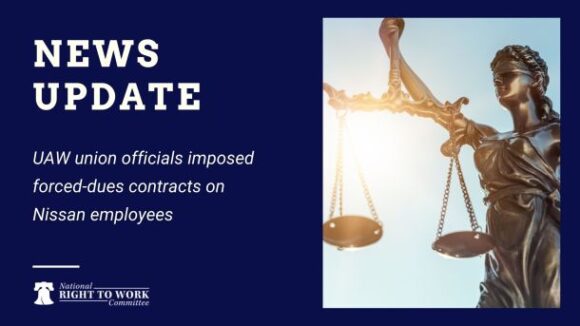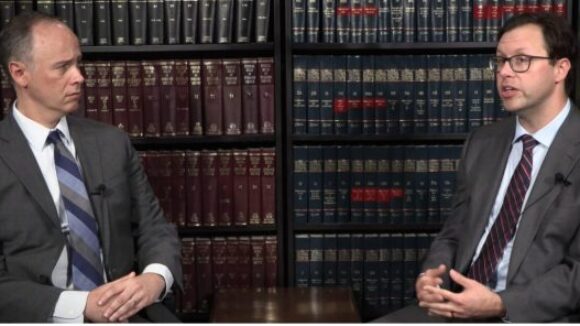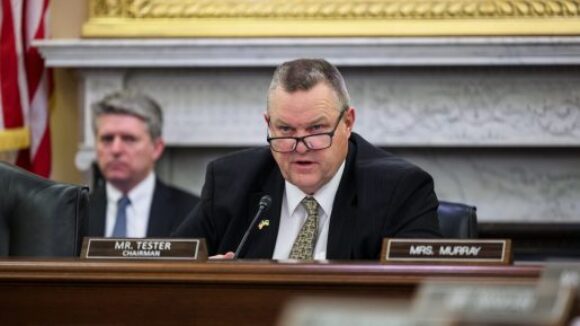Somerset, NJ, Nissan Parts Distribution Center Employees File Petition for Vote to Kick Out UAW Union
UAW union officials imposed forced-dues contracts on Nissan employees
(Click here to download the National Right to Work Committee’s November-December 2013 Newsletter)
Among the major Capitol Hill victories won by pro-Right to Work Americans over the past half-a-century, relatively few would have been possible were it not for the availability of the “extended debate” weapon in the U.S. Senate.
Because of the enormous clout of the forced dues-fueled union political machine, there have been many times since the founding of the National Right to Work Committee in 1955 when Big Labor controlled majorities in both chambers of Congress and had an ideological ally in the White House.
In 1965 and 1966, for example, union lobbyists seemed to have the skids greased for adoption of legislation repealing Section 14(b) of the Taft-Hartley Act. Repeal would have gutted every single state Right to Work law in the U.S.
And as recently as 2009, Big Labor had lined up congressional majorities and then-freshly elected President Barack Obama behind the “Card-Check” Forced-Unionism Bill. This scheme would have helped union bosses corral millions of additional workers and small businesses under union monopoly bargaining.
Of course, 14(b) repeal, the “card-check” bill and a series of union power grabs that came in between were all very unpopular with the public.
But that fact alone would not have prevented these measures from passing. It was the ability of Right to Work supporters, under Senate rules, to keep an extended debate going with the help of as few as 41 out of 100 senators that made the difference, time and again.
‘Top Union Bosses Have Long Wanted to Bar . . . Extended Senate Debates’
“Extended debates, otherwise known as filibusters, enable Right to Work advocates and other grass-roots citizen groups to block special-interest legislation until an alerted public can defeat it directly,” explained Committee President Mark Mix.
“That’s why top union bosses have long wanted to bar completely extended Senate debates.
“If either Senate Majority Leader Harry Reid [Nev.] or more than a tiny handful of the other members of his Democrat caucus cared a fig about following well-established procedures in their chamber, this would be impossible to do without substantial bi-partisan support.
“That’s because, under a rule the entire Senate agreed to at the beginning of the 2013-2014 Congress, it requires a two-thirds majority, or 67 members if all are present and voting, to end debate on a proposal to change the chamber rules so that the proposal itself can be voted on.
“The two-thirds vote requirement for rule changes, a provision of Rule XXII, has been adopted by the Senate in every Congress since it was first approved in 1917.
“Having neither the votes nor the moxie to suspend Rule XXII, Harry Reid, 50 other Big Labor Democrats, and one Big Labor-appeasing Republican collectively opted to ignore it.
“By a 52-48 vote, Mr. Reid and his cohorts simply announced that for the rest of the current Congress they would ignore the Rule XXII provision enabling a minority of 41 senators to delay confirmation of presidential nominations by conducting an extended debate.
“They made one exception by promising to continue to obey Rule XXII with regard to nominations to the U.S. Supreme Court. Of course, they had no plausible justification for ignoring Rule XXII most of the time, but occasionally heeding it.”
In 2005, when Vice President Joe Biden was still a Delaware Democrat senator and a member of the minority caucus on Capitol Hill, he denounced the “nuclear option” that was ultimately deployed by Mr. Reid in November as a “naked power grab.”
Communications Workers Union Czar: ‘We’ve Spent a Lot of Years Working on Senate Rules’
“Joe Biden and other union-label Democrats were without a doubt acting opportunistically, not out of principle, when they opposed eviscerating extended debates eight years ago, but what they said back then was correct,” commented Mr. Mix.
“Regardless of who holds the White House and congressional majorities, extended Senate debates have been an important check on government excesses throughout American history. That check has not yet been completely obliterated, but its future viability is in grave doubt.”
The most important immediate object Mr. Reid had in going after extended debates this fall was the U.S. Court of Appeals for the D.C. Circuit.
At the beginning of 2013, a three-judge panel on the D.C. Circuit enraged the Obama Administration and its congressional allies by unanimously finding that three putative “recess” appointments the President had made to the National Labor Relations Board (NLRB) were unconstitutional and illegal.
As a consequence of this ruling, pro-forced unionism radicals Sharon Block and Richard Griffin eventually lost their seats on the NLRB.
Even though Mr. Reid simultaneously steamrolled Senate Republicans to ensure continued Big Labor domination of the agency, he and Mr. Obama are determined to stop the D.C. Circuit and other appeals courts from interfering with their agenda again.
Because of Mr. Reid’s pulling of the “nuclear” trigger, he will soon have rammed through the confirmations of three Big Labor activist judges for vacancies on the already underworked D.C. Circuit, making it far less likely this court will rule against union bigwigs in the future.
No wonder top union bosses like Communications Workers of America union czar Larry Cohen are overjoyed. “We’ve spent a lot of years working on Senate rules. This is finally a significant step,” Mr. Cohen told the Huffington Post.
Power Grab ‘Should Help’ President ‘Achieve Key Second-Term Priorities’
By largely eliminating the possibility of meaningful judicial oversight during President Obama’s last three years in office, Mr. Reid has performed an enormous service for the White House and for Big Labor. As a Washington Post news headline drily noted, the power grab “should help” Mr. Obama “achieve” his “key second-term priorities.”
And yet, this partial decimation of extended Senate debates is certainly not enough to satisfy the union hierarchy.
What top union bosses from AFL-CIO czar Richard Trumka on down really want, as union mouthpiece Tim Noah explained in a November 22 MSNBC commentary, is to “eliminate” extended Senate debates “in every instance,” that is, with regard to legislation as well as to all types of judicial nominations.
Mr. Noah added that the November power grab was, from his perspective, “a good start,” and gleefully predicted that all extended debates would “soon be a thing of the past.”
“As much as it pains me to say it, I am inclined to agree with Tim Noah that, now that he has taken the first step, Harry Reid will not hesitate to ignore completely Rule XXII’s authorization for extended debates,” said Mr. Mix.
“That means that, in order to stop forced-unionism schemes like mandatory ‘card checks’ from becoming law in the future, the Right to Work movement must ensure its level of support among Washington, D.C., politicians never again goes as low as it was as recently as 2009. That won’t be easy. But it seems it will be necessary.”

UAW union officials imposed forced-dues contracts on Nissan employees

A new federal lawsuit from a National Right to Work Foundation-backed Starbucks employee, currently pending at the D.C. District Court, could upend the federal agency and result in a ruling that the current Labor Board’s structure violates the Constitution.

Thanks to the Committee's election-year program, union-label candidates like Sen. Jon Tester (Mont.) are being given a choice: pledge to change course and support Right to Work going forward, or face the potential political consequences.